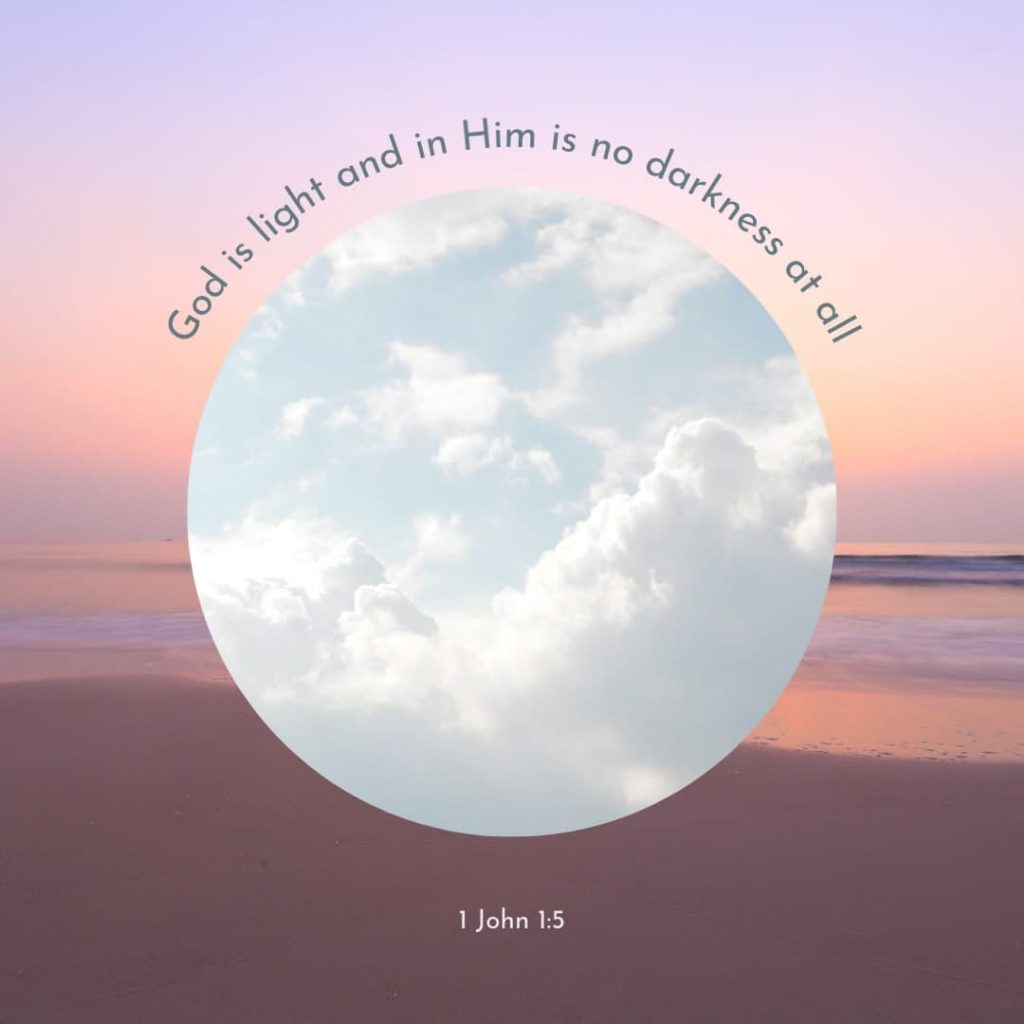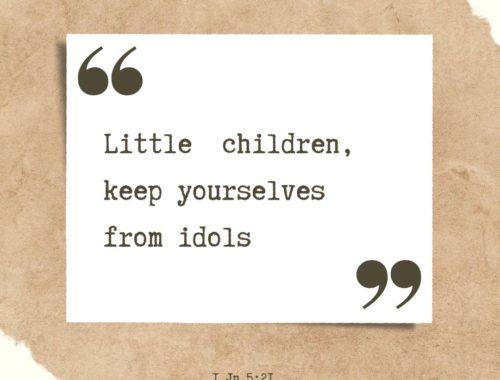1 John Chapter 1

Asking the right questions
When it comes to God, we often hear these questions:
“If God is good, why did He allow Adam and Eve to sin in the Garden of Eden?”
“If God knows everything, why did He choose Judas Iscariot and put him in a position to betray Him?”
And more personally:
“If God loves me, why does He let me suffer?”
Unfortunately, quite often answers to these questions⎯God gives man free will; God’s foreknowledge does not mean that He manipulates everything to their end (free will again); it could be to make you better, it could be as a consequence of sin (yours or others) ⎯are not satisfactory to one who doubts and lead instead to a rejection of God’s absolute goodness, absolute knowledge and absolute love.
The problem is encapsulated in the little word ‘if’. Elder John wants us to remove the ‘if’ from our understanding of God.
This is the message which we have heard from Him and declare to you, that God is light and in Him is no darkness at all. (v.5)
When we accept by faith the absolute goodness of God, we will not insert an ‘if’ into statements about God.
“God is good” not “if God is good”.
For example, we would not ask a question like “If the sun rises in the east, why is my room which faces east so dark in the morning?” An ignorant person may conclude that the room’s darkness may be reason to believe that the sun does not rise in the east! An ordinary person would check if the curtains were drawn, or if there are clouds outside or if it really were morning.
Now let’s see what happens when we ask questions with the absolute belief that “God is light and in Him is no darkness at all”; and listen to the answers from the Bible.
“Why did He allow Adam and Eve to sin in the Garden of Eden?”
2 Timothy 2:20-21 tells us that we are made differently but we have freewill to do good. Freewill is an important gift from God to His special creation, man. We wouldn’t want to be instinctive creatures like the other animals or servile programmed creations like robots, do we?
“Why does God let me suffer?”
Ecclesiastes 7:14 tells us to consider our ways in the day of adversity. Much of what happens to us are a consequence of our actions.
Read also Galatians 6:7-8. Sometimes, God wants to try us to make us even better.
Read the book of Job. But read it trying to find out the reasons for suffering and not read to find out reasons to doubt the goodness of God.
Humbly acknowledging the right answers
Elder John spends the first four verses of Chapter 1 explaining how he and the other apostles have come to the conclusion of the message in verse 5. They have heard, seen, looked upon and touched this living, loving and loveable God, Jesus Christ.
That which was from the beginning, which we have heard, which we have seen with our eyes, which we have looked upon, and our hands have handled, concerning the Word of life⎯ (v.1)
The apostles’ faith was unshakeable to the end. Prison, martyrdom, suffering could not separate them from the love of Christ (Romans 8:35-39).
What are the secrets of their saving endurance? One is certainly ‘the message’ – God is light and in Him is no darkness at all! This is to be accepted by a faith which grows to overcome the world (1 John 5:4).
And in the rest of Chapter 1, John tells us about the second move – walking in fellowship with God.
When we have faith in His absolute goodness and walk with Him, we are enlightened to know our weaknesses and sins. Because we know that it is never Him to be blamed, we acknowledge and repent of our sins thus gaining His forgiveness through His blood.
But if we walk in the light as He is in the light, we have fellowship with one another, and the blood of Jesus Christ His Son cleanses us from all sin. (v7)
The people of the world would rather reject God than acknowledge their sins. They would rather call God a liar or a despot. In our humility and wisdom, let us not be like the world. Let us remove the unnecessary ‘ifs’ about God from our reasoning. Use ‘if’ as it is meant to be used, for the real uncertainties of life.
If we say that we have not sinned, we make Him a liar, and His word is not in us. (v10)
2 Peter Chapter 3
1 John Chapter 2
You May Also Like
